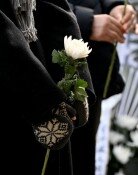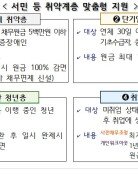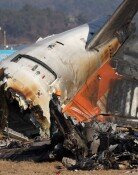Academic Record Forgery Flourishes In Russia
Academic Record Forgery Flourishes In Russia
Posted August. 23, 2007 07:26,
Subway trains in Moscow are plastered with fliers that read, Diplomas are available in a day. The keywords, purchasing degrees in Russias portal sites produce hundreds of web pages and contact points.
The phone numbers of a web site providing counterfeit degrees can be changed, but the homepage itself never disappears. People here buy degrees without scruple, said Igori Suharov, a student at National Moscow University.
Microscopes fail to identify authenticity
The costs depend on not the ranking of colleges but the technology employed in fabrication, said a diploma forgery broker. What it means is that certificates made with paper used in Russias minting agency and high-tech printers fetch high prices.
Even microscopes cannot verify the authenticity of certificates if they are forged utilizing high technologies, said a lecturer at National Moscow University.
High tech counterfeit diplomas usually go for 12,000 to 30,000 rubles (about 450,000 to 1.13 million won), according to brokers. The forms of diplomas and certificates in Russia were changed in 1996, giving rise to technological difficulties in forgery. If one needs a certificate for the completion of a school course after the year 1996, he or she has to pay higher prices for it.
A middleman in Propsyuznya, a town south of Moscow guaranteed that forgery of academic certificates poses no problem, and said, Few colleges bother to identify if they are genuine ones.
Contradicting his remarks, officials in charge of managing diplomas at some prestigious Russian universities said, Upon official requests from other organizations, we give confirmation after checking school registers.
However, some professors and lecturers chimed in with the broker. As most universities and colleges have been suffering from faculty shortfalls since the collapse of communism, few of them have a verification system for counterfeit diplomas, said a part-time lecturer.
Worse still, businesses fabricating documents that contain both school registers and credits are flourishing, girding themselves for possible crackdowns on forgery.
The most challenging forgery is satisfying the needs of those who want to enter the munitions industry. That needs fabricating certificates that are required to register with the education ministry, and inserting them into the registers of graduates. They sell for $10,000 at minimum, said Vitali, who runs a diploma brokerage.
Tailored service-
Internet businesses with upgraded services are also mushrooming. One website specializing in academic record forgery promotes its services, saying, Get diplomas first, and obtain knowledge needed in the workplace: that avoids waste. The site also says it guarantees customer satisfaction with its database, which contains course schedules of all the universities and colleges in Russia.
If a customer lives outside of Moscow, we deliver the documents by mail. We also cater to customers in Asian countries including Korea, said the operator of the site.
viyonz@donga.com






